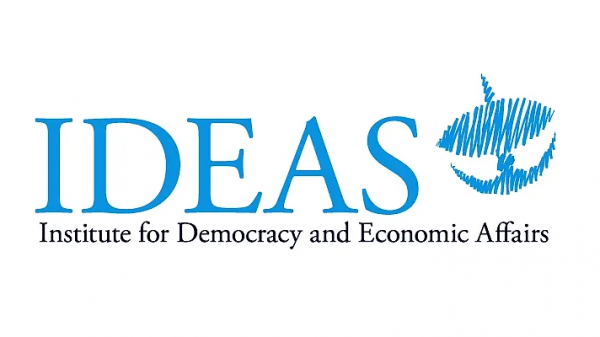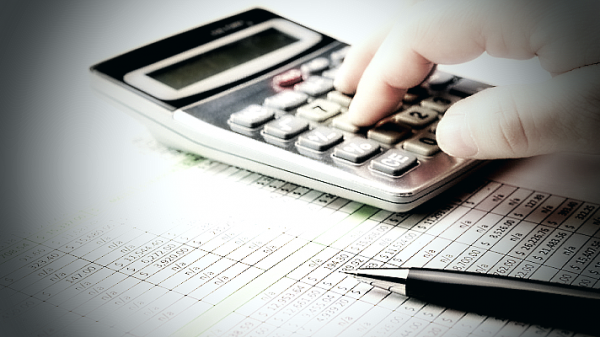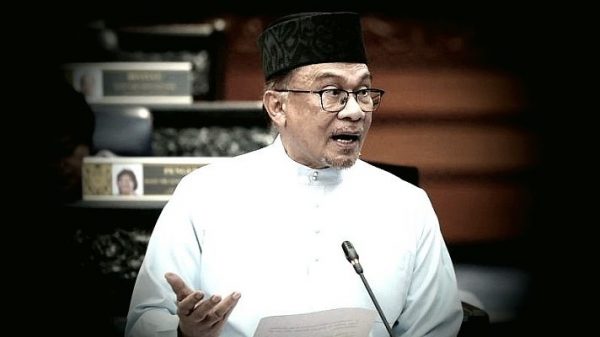KUALA LUMPUR: Malaysia’s economy is expected to grow moderately between four and five per cent in 2023 compared to the anticipated 6.5-7.0 per cent growth in 2022, according to the Finance Ministry (MoF).
It said the gross domestic product (GDP) growth for 2023 is likely to be backed by strong fundamentals and a diversified economic structure, coupled with the ongoing policy support to cushion the impact of the rising cost of living and mitigate the downside risks stemming from prolonged geopolitical uncertainties and tightening global financial conditions.
On the 2022 GDP growth forecast of 6.5-7.0 per cent, the ministry expected a favorable growth momentum in the domestic economy and steady expansion in the external sector as well as continued improvement of the labor market conditions.
In Budget 2022, the government projected the country’s economy to expand between 5.5 per cent and 6.5 per cent for this year.
According to MoF’s Economic Outlook 2023 report released today, the services sector is expected to be the main contributor to 2023 GDP growth and anticipated to grow at five per cent, followed by the construction sector (4.7 per cent), manufacturing (3.9 per cent), agriculture (2.3 per cent) and mining (1.1 per cent).
Meanwhile, MoF expected the private sector to remain the key driver of growth, with domestic demand envisaged to further expand by 5.1 per cent in 2023.
“Private sector expenditure is forecast to grow at 5.8 per cent in 2023 with the share of GDP at 76.2 per cent, while public sector expenditure is projected to expand by two per cent with the share to GDP at 17 per cent,” it said, adding that private consumption is anticipated to grow by 6.3 per cent in 2023, while private investment is projected to grow by 3.7 per cent.
For the external sector, MoF said gross exports are expected to moderate by 2.2 per cent across all sectors in 2023, while gross imports are expected to increase by 0.2 per cent amid global uncertainties.

Meanwhile, it said the current account balance is expected to record a surplus of RM73 billion or 4.2 per cent of gross national income (GNI) in 2023, in line with continuous improvement in economic activities.
The ministry forecast the inflation rate to range between 2.8 and 3.3 per cent in 2023, while the Producer Price Index is expected to moderate on stable global input costs.
On the ringgit, MoF said its flexibility is a key mechanism to help the Malaysian economy adjust to the changing global economic and financial developments.
“Over the medium term, ongoing efforts for structural reforms are expected to strengthen Malaysia’s economic fundamentals and this would naturally support the ringgit,” it said.
Overall debt projected to be 65 per cent of GDP, debt at 63 per cent by end-2023.
MoF said the overall debt is projected to be 65 per cent of GDP, while statutory debt at 63 per cent by end-2023, as borrowings are still substantial due to higher allocation for development expenditure and high principal repayments obligation, which includes redemption of 1MDB’s maturing bond.
“Therefore, considering the COVID-19 debt-scarring effect and to ensure smooth implementation of the 12th Malaysia Plan (12MP), the government may extend the statutory debt limit of 65 per cent of GDP in the medium term after the expiry of Act 830 on Dec 31, 2022,” it said, adding that the increased debt level will heighten the borrowing cost and refinancing risk.
The ministry said as at end-June 2022, Malaysia’s external debt increased to RM1.128 trillion or 65.9 per cent of GDP, mainly contributed by higher interbank borrowings and the foreign currency exchange rate valuation effects following the depreciation of the ringgit especially against the US dollar.
In 2021, it stood at RM1.082 trillion or 70 per cent of GDP.
Overall, the fiscal deficit is expected to be reduced to 5.5 per cent of GDP for 2023 from 5.8 per cent of GDP in 2022.
“The fiscal deficit is expected to consolidate at a gradual pace with the overall balance averaging at 4.4 per cent of GDP for the Medium-Term Fiscal Framework 2023-2025 (MTFF) period,” it added.
On the federal government’s revenue, statistics released by the report showed that it is expected to decrease by 4.4 per cent in 2023 to RM272.57 billion from a growth of 22.0 per cent (RM285.22 billion) in 2022.
MoF said the sales and service tax (SST) is forecast to record RM32 billion or about 1.8 per cent of GDP of which sales tax and service tax are projected to increase to RM16.3 billion and RM15.7 billion respectively.
It said the non-tax revenue is expected at RM67 billion in 2023, declining by 23 per cent from 2022 due to lower dividends from government entities, particularly from Petroliam Nasional Bhd (Petronas) which is projected to be lower at RM35 billion.
In 2023, petroleum-related revenue is expected to register RM58.9 billion or 21.6 per cent of total revenue in line with the assumption of lower global crude oil prices averaging at US$90 per barrel, it added.
Meanwhile, in his foreword in the Economic Outlook 2023 report, Prime Minister Datuk Seri Ismail Sabri Yaakob said the transition towards endemicity and the reopening of our international borders on April 1, 2022 are among the factors that will keep the growth momentum going throughout the year.
“Looking ahead, we are concerned about the impact of persistent external uncertainties on our economy,” he said.
Budget 2023 continues to provide substantial support to the economy.
Budget 2023 continues to provide substantial support to the economy with a total allocation of RM372.3 billion or 20.5 per cent of GDP, up 12.1 per cent from RM332.1 billion in Budget 2022.
“Of the RM372.3 billion allocation, RM272.3 billion (73.1 per cent) will be allocated for operating expenditure, while RM95 billion (25.5 per cent) for development expenditure,” says MoF.
“The remaining RM5 billion is for outstanding payments of the COVID-19 Fund commitments made in 2022 as stipulated in Section 8(1), Act 830,” it said in its 2023 Fiscal Outlook and Federal Government Revenue Estimates report released today.
The top three recipients of Budget 2023 are the Finance Ministry (RM67.2 billion), Education Ministry (RM55.6 billion) and Health Ministry (RM36.1 billion), constituting 43.3 per cent of total expenditure, it said.
Finance Minister Tengku Datuk Seri Zafrul Abdul Aziz said that given the more challenging operating landscape, Budget 2023 will prioritize reform initiatives to improve the well-being of the rakyat, strengthen business resilience, promote economic prosperity and enhance public service delivery in order to sustain the economic growth momentum.
“Budget 2023 is based on three key focus areas: strengthening the momentum of economic recovery, building economic resilience and catalyzing comprehensive reforms,” he said in the preface of the Economic Outlook 2023 report.
Moving forward, he said the government will continue to monitor global developments and develop appropriate policies to address any external shocks, be responsive towards protecting the rakyat’s livelihoods and well-being, and ensure business recovery.
ADVERTISEMENT
ADVERTISEMENT








































